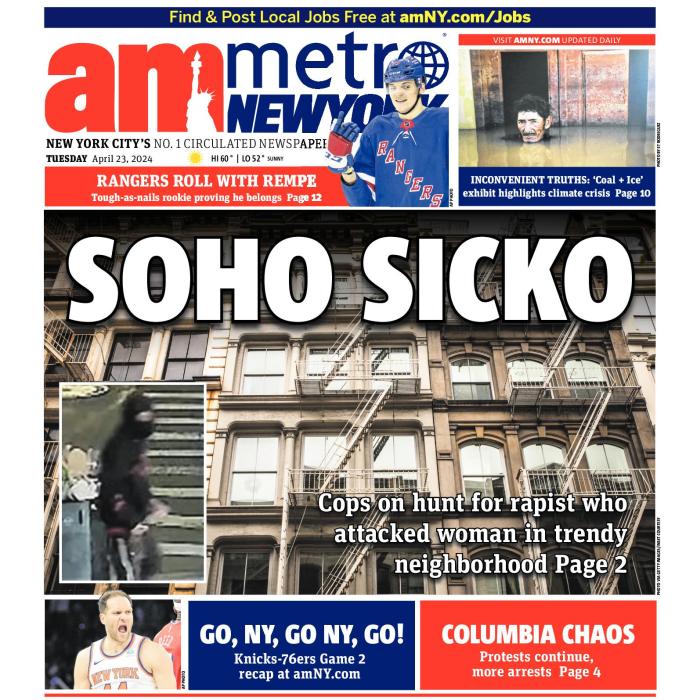
Until this year there were three bookstores on a 10 block stretch of Court Street in Brooklyn. Soon, only one will remain.
From south to north: Community Bookstore, a strange rabbit warren of a place where the used books were piled high, sometimes at random. It was open at odd hours, during which the bookseller didn’t appear particularly worried about actually selling books. It closed earlier this year.
In the middle, the much-heralded BookCourt, whose owners announced this week that the store will be closing. That announcement was met with outcry from residents and much of the city’s literary community, for whom the store had become a gathering spot for readings and people-watching.
The last store standing is Barnes & Noble, right off State Street. You know what a Barnes & Noble looks like.
The circle of life
When a bookstore closes in New York City — home to a good number of the stores and the country’s publishing industry — there’s a familiar cycle of commentary bemoaning a neighborhood or borough’s loss, or maybe general anxiety that changing reading and purchasing habits are destroying all that’s good in the world.
None of these has to do with why BookCourt closed.
It is nestled on a well-traveled street in Cobble Hill, possibly one of the friendliest areas in the world for a bookstore — a neighborhood heavy with those who work in media and publishing. In an email, co-owner Mary Gannett said, “Business has been good, and we are closing the store out of choice, because we’re ready to retire from bookselling and 35 years of the day-to-day running of BookCourt.”
In many ways, the store was lucky and inoculated from usual pressures. Gannett and her then-husband bought the building before the neighborhood became the hip and expensive mecca it is today. A 2009 profile of the family described the neighborhood’s quiet, sometimes empty streets and the “elderly Italian-American women who remembered the funeral parlor” where the bookstore sprouted. The women “used to cross themselves when they passed.”
The lively store was certainly part of the neighborhood’s recent draw; and it was able to weather rent increases along that strip of Brooklyn as the neighborhood got more expensive. The owners were prescient enough to expand to include an event space for readings (in 2014, I did a reading there; I’ve also frequently made use of the store’s semi-public bathroom). The events and bright design helped it become much more of a community space than Community Bookstore down the block, the musty, mostly unfriendly used bookstore that is now closed.
It fit much closer into new Brooklyn’s idea of an independent bookstore, and prospered because of it.
Bookstore changes can be a leading indicator
The indie model, however, relies on a certain clientele, drawn in by well-planned events, schooled in the idea of “shopping local,” as Andrew Unger, a former employee at BookCourt puts it.
Unger, now an event coordinator for Kepler’s Books in California, notes that indies have been successful in places where they could educate their customers about the benefits of small, local bookstores enough to pay a little extra compared to online.
But a funny thing happens in Brooklyn and elsewhere: the bookstores tend to be both harbingers — and perhaps accelerators — of gentrification. Soon, some stores find it impossible to afford the places where they put down roots.
Unger says the next “education” campaign has to be of “local governments and local landlords, to recognize that a bookstore is way better for them than a bank.”
That hasn’t quite happened yet — bookstores rarely come up at rezoning hearings — but politicians have gotten involved when big stores like Barnes & Noble signal they could be moving in or out.
That was the case in the Bronx, for example, in 1999, when local politicians fought to bring a Barnes & Noble to the borough, which was (and is) desperately underserved by general interest bookstores. When Barnes & Noble announced this fall that the Bronx store would close at the end of the year, local leaders spoke out to keep the store’s jobs and cultural gravitas in place. Barnes & Noble has said they are looking for an alternate site in the borough.
Like the indies, their one-time foe Barnes & Noble has its own struggles with rent and industry changes. But when they manage to remain open, they are an underappreciated resource — as some residents realize only when the stores close.
The Court Street location is not hip or beloved by the NYC literati. Still, it is crowded with students and older patrons and those looking to take a seat in the Starbucks cafe or in chairs around the cavernous store.
The store keeps good hours, is very well-stocked with new and old books. Now, on that block, it’s the only bookstore left.

















